Today is the 1 year anniversary of interview En L’air!!! Show your love by sharing your favorite interview!
When I found out I got into Juilliard in 2002, I was extremely happy. A few days later I find out that the legendary director Benjamin Harkarvy had died and Larry Rhodes would be the new director. I came to Juilliard as a part of Larry’s first freshman class. We were chosen by Harkarvy, but Larry was the only director we knew.
Larry is an excellent director and teacher. One of the best I ever had. He is musical as hell. His combos were all so cool and fun. It was challenging but not heavy. His class was like a musical ride that you just go through and somehow after an hour and a half, it winds down and stops. He was so honest…but he had gained our trust from day one. Larry gets results. There are somethings only Larry could say. I remember one story from a friend of mine (names are changed for privacy) Larry said to one girl in class “Sally ,your fifth position….well…it’s not”. It was not Unusual for Larry to tell it like it is. My personal favorite is “Armando can you do Pique Arabesque? Like… actually do it?!”. ME: yes. Larry: Then DO IT! I didn’t realize what he meant until a few years later. He would sing the beat of the music of tap his foot to the rhythm… Through the whole class. He never missed one beat. Larry began tap dancing at age nine and discovered ballet when he was fourteen. I find that dancers that start with tap, often develop an exceptional musicality. Look at Alphonse Poulin! Another great teacher.
The department was changing before our eyes. I took the first Cunningham class at Juilliard with Banu Ogan. Merce even came to watch! New things were happening all the time. It was exciting! We toured to L.A. and Chicago. We worked with William Forsythe, Nacho Duato, Ohad Naharin, and many other great artists. A Juilliard dance Alumni said to me once “The Juilliard kids are dancing better repertory than I am doing in this professional company!” Priceless… because he was right.
Larry is also an enlightened soul. He is always quite calm and positive. He has a great since of humor. I laughed so much during his interview and listening to it again…I laughed even more. He is sharp and clever. I could talk for to him for hours. He has an incredible passion for dance and a passion for life. He taught me a lot of big lessons in my dance career. I wont go into too much detail, but I will say this…to say he gave me a kick in the ass would be an understatement. The amount of knowledge and experience that flows through this man is extraordinary. It was Larry who gave me the push I needed to go become a professional…and I never looked back since. Well.. that not entirely true, sometimes I do wish I could go back and do it properly… but my way was probably more fun…and anyway it’s done.
Larry was born in West Virginia in 1939 and moved to Detroit with his family two years later. Larry studied at the Ballet Russe School, and he began his career performing 19th- and 20th-century repertoire in New York with the Ballet Russe de Monte Carlo from 1958-1960. In 1960, he became a principal dancer at the Joffrey Ballet, where he was praised for his dramatic and disciplined performances in new works such as Gerald Arpino’s Partita for Four and Ropes; and Brian MacDonald’s Time Out of Mind, which demonstrated his dramatic range.
In 1964, Larry became a principal dancer with the newly-formed Harkness Ballet and was voted artistic director – while continuing to perform – four years later by his fellow company members. It was at the Harkness that Larry became known as an outstanding dramatic presence in landmark ballets created for him: Stuart Hodes’ The Abyss; and John Butler’s Sebastian and After Eden, the latter of which was created for Larry and his wife, Lone Isaksen. He also danced in the Harkness’ famed revival of Rudi van Dantzig’s Monument for a Dead Boy.
To help deal with the overwhelming responsibilities of simultaneously performing and directing, Mr. Rhodes asked Benjamin Harkarvy to join him as co-artistic director of Harkness Ballet in 1969, prior to the disbanding of the company by Rebekah Harkness in 1970. It was the first of several times that Larrys career path would intersect with Mr. Harkarvy’s; both subsequently went to Amsterdam in 1970, joining the Het Nationale Ballet, where Larry became a permanent guest artist. Then, from 1971-1973, He was co-director of the Milwaukee Ballet. Beginning in 1972, he was guest artist (and subsequently a principal dancer) with The Pennsylvania Ballet where he danced with guest ballerina Natalia Makarova. Larry danced there until 1978 and was instrumental in bringing Mr. Harkarvy to that company as artistic director. Larry also was a principal dancer with the Eliot Feld Ballet during that same period and pursued freelance work, most notably with Carla Fracci in Italy.
After a tenure as teacher and chairman of the dance department at New York University, Mr. Rhodes spent an outstanding decade as artistic director of Les Grands Ballets Canadiens de Montréal. Currently, Larry is a prominent guest teacher with such companies as Lyon Opera Ballet and Cullberg Ballet in Europe among others. He has also participated as adjudicator for the Beijing International Invitational Ballet Competition, the Seoul International Dance Competition, and the Youth America Grand Prix. In July 2009, Mr. Rhodes received the Lifetime Career Achievement Award from Dance Teacher magazine. In December, 2008, he received a Dance magazine award for his outstanding work in the industry.
While moving to Europe has been great for my career, there is one downfall… My teachers like Larry never see me perform as a professional, or see me NOW in class. I am not tooting my own horn, I am saying now…I DO IT! You would be proud Larry. Thank you for your inspiration……..
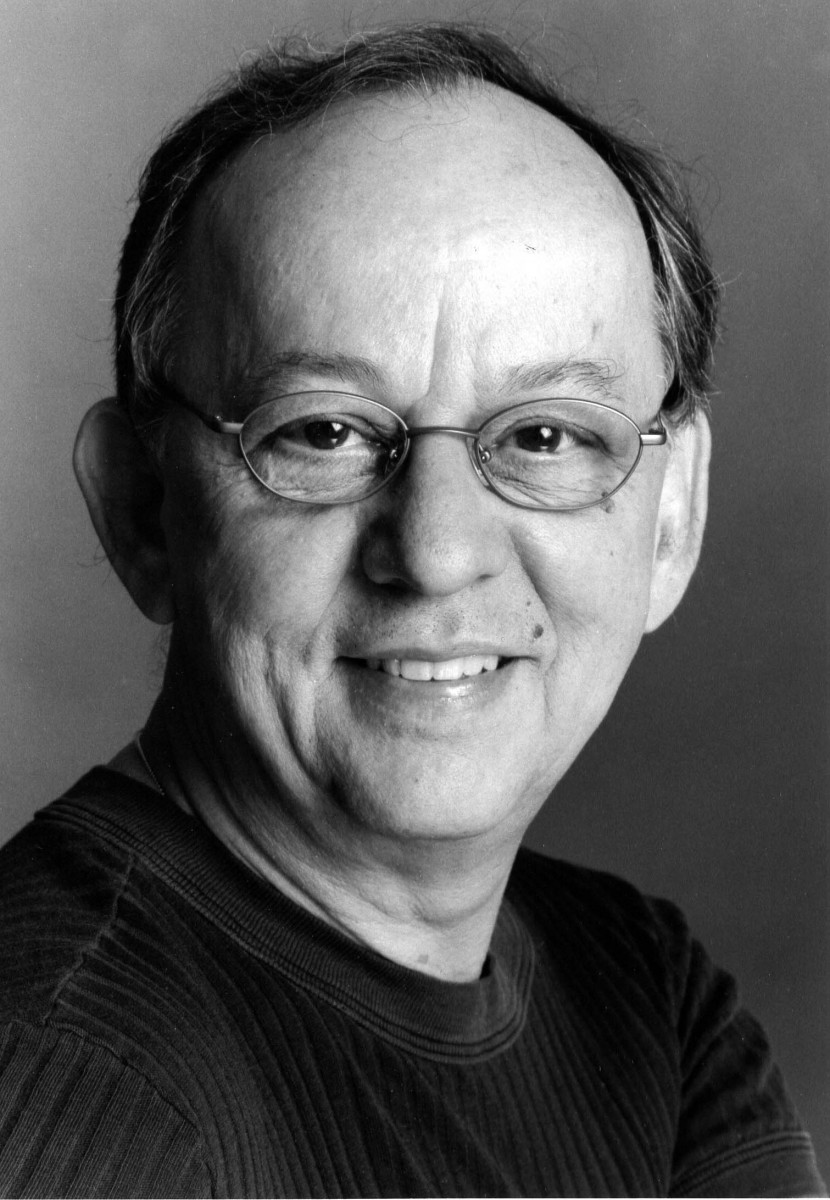 Larry by Krystyna Sanderson
Larry by Krystyna Sanderson
When you were little, what did you want to be when you grew up? Did you always want to do what you’re doing now?
Yes. I was actually a pretty sickly child. I had rheumatic fever a few times when I was young. A doctor suggested some physical activity to strengthen my legs. My mother already knew that I loved dancing so I started dancing classes. I really got serious about it when I was nine. Dancing was always what I wanted to do, and somehow on the plate for me. This summer I will have spent 58 years in the dance profession.
Favorite Things to eat?
Steak. Love steak… and you know they say – red steak red wine. That’s the best meal, with a little green salad on the side. I love duck, too, any kind of way. I know it’s bad for you, but I love it. I also love Belgian chocolate.
Favorite Books?
When I was very young there were several books that were very important to me. Some had to do with the history of ballet and I was crazy about books about Diaghilev and Nijinsky. I really absorbed that period and thought that I had been born much too late. I should have been there. It was so exciting to me – all those artists that were around, the paintings, the costumes, the music; everything was fantastic. And of course they were celebrated, they were traveling beautifully… So I was very enamored of that period.
Another author I liked a lot was Ayn Rand. I read Atlas Shrugged, The Fountain Head, and books like that when I was in my late teens to early twenties and I found them very inspiring. It is an extreme version of getting what you want, through sheer perseverance and determination. I thought I could be like those characters.
Then there are the little scary novels that I loved, too. 1984 and Brave New World. I thought that they were scary and, it turns out, not so far from the truth. We live in a very complicated world now where there is, essentially, no privacy. Those books forecast the future.
Also, I am not a fiction person so much, but I love biographies. I have read a lot of biographies and autobiographies. It is interesting to see what other paths are taken by artists on their way to success, how they actually got there.
Favorite Movies?
The most influential movies for me I was very young were Fred Astaire and Ginger Rogers films. They personified this beauty of movement and dance and glamor. My first dream was actually to go to Hollywood and be a dancer in the movies. They always had so much fun. Happily ever after was always there, right? It always ends well with those guys. I always thought that was very ideal and it was. Not real, but ideal.
Then there was a dance film that changed my life forever called The Red Shoes with Moira Shearer. I saw that when I was twelve. I was totally blown away and saying to myself, “what the hell is that?” It was an amazing new world which I, of course, was a little bit of a gloss on the Diaghilev world. I thought it was a fabulous film and I went crazy about it. Also it introduced me to a whole other way of dancing. It was soon after that I started to do ballet class, too. I got my first job when I was sixteen.
Favorite Dance Piece or Show/Musical or both?
It is easier for me to talk about show musicals in a way because I am a big Broadway fan. I love the work of Stephen Sondheim, almost anything he has done. A Little Night Music, Sweeny Todd, Company, Follies, Assassins – I am crazy about many, many Sondheim shows.
Then there is a special show I ran into in London in the early 80’s called Chess. It became a big favorite of mine. A few years later they decided to bring it to New York and they also decided they would re-do it and make it more accessible. They really screwed it up. I ran to the opening night in New York and I was watching it thinking, “what the hell is this?” They tried to be so literal about everything and it took the abstraction away and it took the power of the drama away. So it lasted in New York for about ten days or something like that and it had been in London for several years. Chess was really great.
I have been around a long time so in fact, I saw Gwen Verdon in Damn Yankees, Ethel Merman in Gypsy, and Barbara Streisand in Funny Girl. I have seen a lot of the iconic performances on Broadway, too, and I really loved them. I really love entertainment in that way.
A favorite dance piece would be harder for me to talk about because there are so many. There are favorite dance pieces that I have seen and favorite dance pieces that I have danced. It is a complicated sort of big area so I think I will just leave that one alone.
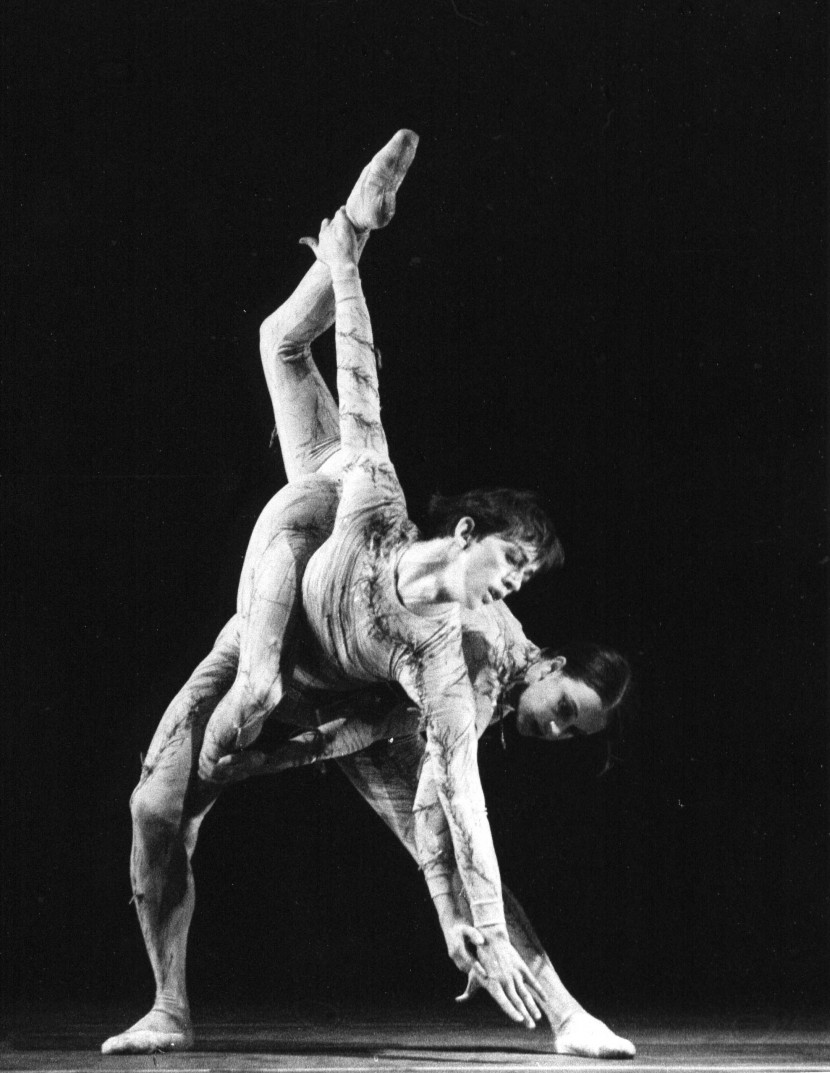 “Lawrence Rhodes and Lone Isaksen in “After Eden”
“Lawrence Rhodes and Lone Isaksen in “After Eden”
I like dancers who…
…know who they are and what they are doing. People who actually understand dancing from the inside. And then I could say also that I like dancers that make dancing look and feel fresh and spontaneous and I like dancers who are unafraid. I think risk-taking is very important, and you have to get yourself out there and see what happens. I tell the students here all the time “look, it’s not over till it’s over.” You can work at this for as long as you want to do it. There is always something to do.
I am afraid of…
Hmmmm… I am not a very fearful person. I don’t know… I think, it was a long, long time ago that I dealt with issues about fear. And of course the biggie there is death. I think if you can face that idea and come to terms with it, then little else is scary. Because everything else is related to it. So fear of failure is a form of the fear of death. And fear of not being good enough is a form of fear of death, almost all fears are related to the fear of death and I think that is the biggie that one might like to focus on for a good bit of time until you can come to terms with it.
A dance piece should…
Be very satisfying in all the most important ways. So I mean, visually, aurally and kinetically. Alive and compelling. I mean that is, of course, a great work.
Something you like to do other than your current job?
I love movies. I go to movies all the time. I love museums. I love the human voice. You know I listen to a lot of music and singing and it can be pop or opera -I love it all. I have lots of albums that really give me pleasure. I sort of sing along too – yes, sing along – and I’m not so bad… not so bad.
One of the happiest moments in your life?
There are many. You know I’ve had a long life already. If I look at these in kind of a chronological order: The Joffrey did a tour of Russia in 1963 and it was a very, very special time for me. First of all, I thought Russians were very knowledgeable audience members. I was in that moment, in a little kind of crisis about whether I was a dancer or whether I was an artist and into that whole idea about what it means to be an artist. And what do you have to do – are you born with it or can you make it happen? I was questioning myself, existential questions about artistry and being an artist and I had a huge success in Russia. What it did for me was give me sanction that I actually was someone who is communicating. I was someone who was there and much appreciated by a very knowledgeable audience. That was a very important moment for me. It gave me courage to go ahead and continue and to be the best I could be. I was very grateful to the Russian people for recognizing me.
And then Harkness Ballet had its first New York season in November 1967. These were my first performances in New York for real. I say that because I had done a little bit of performing in the park or with the symphony. You know, a few little things around town but nothing on the scale of performances and repertoire like I was doing then. This was another huge step for me. I was again quite celebrated and had good reviews and was… yes…appreciated.
Being present for my son’s birth was also an amazing time. A very, very happy time. It was in October of ‘71. In 2009 I got the Dance Magazine Award. It is sort of the highest honor in dance one gets in this country. That was of course very exciting and thrilling for me, again, to be recognized on a different level. I am a real survivor, too.
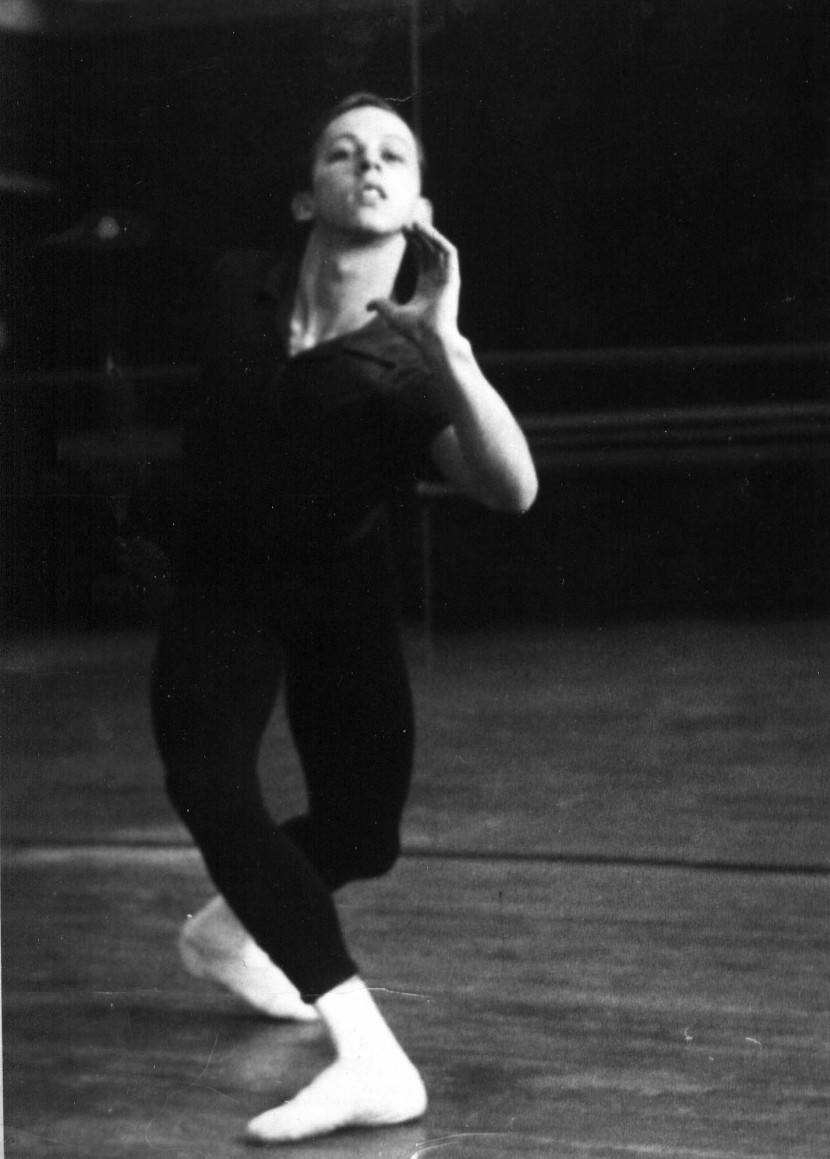 “Gloria Contreras’s “Vitalitas” at Ballet de Camera in Mexico”
“Gloria Contreras’s “Vitalitas” at Ballet de Camera in Mexico”
One of your most unusual or coolest experiences?
I think this is all for me about travel because I started traveling when I was 16 on the train and then I came to New York joined Ballet Russes and then I was on the bus, and then Joffrey and Harkness got together and the state was supporting us, and we started touring in a major way. One of the first tours we did included India. I was stunned by India. We were 7 weeks in India and I thought it was just an amazing place. I thought it was really cool. Actually I wanted always in my life to go back there and I never have. That was the year before Russia. Following Russia I made my first ever visit to Paris. It was December, so it was pretty cold and wet and damp and all that but Paris is so gorgeous. Everybody was in a really good mood for Christmas. I remember I did my Christmas shopping for my family in Paris and I thought, “Wow, what a great thing to do!” Certainly touring in Italy and working and dancing in Italy was just mind-blowing, just a stunning country. I was dancing with Carla Fracci and I was working with her all over the country. We visited some major cities but also some smaller ones, they were all just stunning with a great quality of life and great food. It was really a pleasure to do all of that. Also I thought it was amazing to be in South Africa. Incredible! The nature is so savage and beautiful and wild and wonderful. It is just breathtaking. I guess I would say that most of coolest experiences have to do with visiting foreign lands.
One of the most embarrassing moments in your professional career?
Probably everybody says this, but there was a very auspicious moment when I fell on my ass. This was at the Harkness Ballet and my wife and I were doing the world premiere of a piece called After Eden which had been created by John Butler. We were in Cannes in the south of France. Everybody was very excited about this premiere. The second movement is a fairly long and technically complicated solo for the man and I was flying around doing my best to make all these things happen. I got near to the end of the solo and I had to go upstage to do a pirouette finishing downstage and I landed on my butt. Of course you get up in one second and you carry on. Actually about 30 seconds later that solo was over. I remember lying on the floor thinking Oh my god, what did I just do… what did I just do!!! The piece finished and the house came down. Everybody was crazy about it, cheering and screaming and stomping and whatever. The bows went on for a little while and that sort of makes you feel a little better, but people were coming up to me after the show saying “Wow, this was fantastic”, and I was just staring at people going I fell… I fell. I fell down tonight. Everybody was saying, oh it doesn’t really matter, and I still was like… I fell.
Who has been the most influential person/people in your life? Or Career? And why?
Oh gosh… of course there are the obvious favorite best teachers ever and one of them was Robert Joffrey and Joffrey was also the director of the company I was in for 4 years. When I teach, I think about him because of his love of the work and his energy about it and his compelling presence to actually get involved and do it and have a good time doing it. It is very important. Certainly he was very important to me. Probably the teacher who was most technically accurate and secure in ways that I followed is Maggie Black. She was very important, too. My first ballet teacher, it turns out, was not a very good teacher but I didn’t know that until later. She was also a woman who had a great love of dance and she did a couple of things that were really important. Her name was Violette Armand. She was married to a Romanian guy and they had a big studio in Detroit. She had a blackboard and she would say “we are going to do Pas de Basque today and Pas de Basque can be done in many ways” and she would teach you the Italian version, the Russian version, and the English version, etc. She had all of these things going on that I thought was kind of remarkable because what it did to me was say that there is more than one way to do something. That is a very important lesson to have, especially if you are a young ballet dancer. Because young ballet dancers are often indoctrinated into very particular systems and then they have abide by this system, whatever it is. And she was actually saying that there are lots of ways to do this. I thought that was a very important message she got out. I would certainly count her as a very important person.
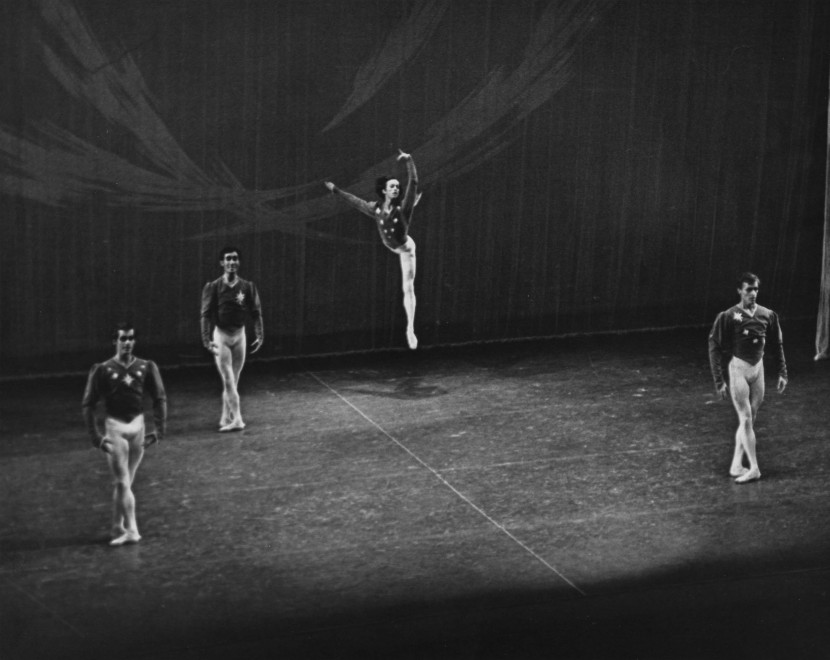 “Lawrence Rhodes in “Variations for Four”
“Lawrence Rhodes in “Variations for Four”
One of the hardest things about your job?
129 personalities. There are 99 students in the school currently the faculty number is about 30, something close to that. I have to deal with them all the time. A lot of them are very easy and very reasonable and of course within 129 people you can imagine that there are a few people who are complicated. The other thing is the just kind of demands of being in the job. I started running around this morning having breakfast with a researcher, and then going to a Juilliard meeting, and then a public relations meeting, then I went to lunch with a choreographer, and then I came back and now I’m talking to you, and then I have a few little things to do on my calendar before I can go home. They are long days and they are busy and they are complicated. Juilliard is actually quite demanding of your time. It is not the worst hardship in the world, but it is sort of relentless.
Do you have any goals you still wish to achieve?
I came to this school and recognized the potential of its students and then I started to think about what I could do to make it even better, to continue to raise the bar for the students, for the faculty, and for the audiences. Then I started to work on that and I have to say it wasn’t easy. There are people who don’t like change and, actually, I love it. I love change. I love to see how things can change and improve and work even better and be more inclusive in a way. So I think that is kind of a never-ending goal. To keep pushing the envelope or whatever they say these days. To insist that the dance department continues to evolve, in keeping the tradition while also reflecting the realities of today’s profession.
A question you want to know the answer to:
Oh gosh… I think currently I’m having a very difficult time with the world – the degree of unhealthy corruption and the economy. It seems very unfair and very unreasonable. For 1% to have all the money and the other 99% looking for it. But that is only the tip of the iceberg because my wife and I got involved in the environment probably 30 to 35 years ago. The lack of respect for the planet is very upsetting to me. The money people they have decimated the planet in a way that benefits their bottom line. I don’t know if there’s an answer because it’s so far gone, but I am very upset that people seem to not care about the planet or the people on it. I have to limit myself a little bit to the news media because it just makes me angry.
Dear aspiring artists,
You have to learn right away to respect the process. You have to keep firm your commitment to do the work through all the ups and downs that you will experience. You want to try to find honesty and integrity in all the work that you do.
–Larry Rhodes
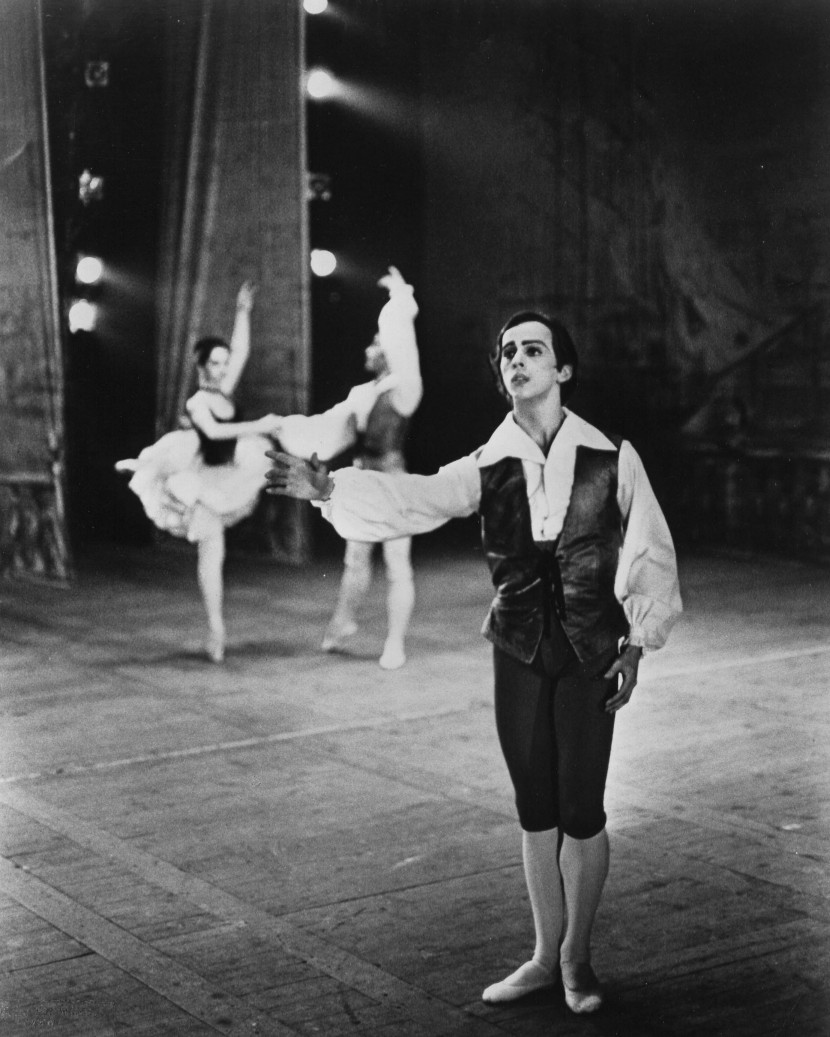 “Lawrence Rhodes with the Harkness Ballet in Barcelona”
“Lawrence Rhodes with the Harkness Ballet in Barcelona”
To find out more information on Larry, check out the Juilliard website. Have you worked with Larry? Have you seen Larry perform? Help me say thank you by sharing your stories in the comments below. Thank YOU for reading!
Help me keep this series going. Donate today! If you cant give now, Show your support and Join over 1000 Interview En L’air subscribers! Thank you!
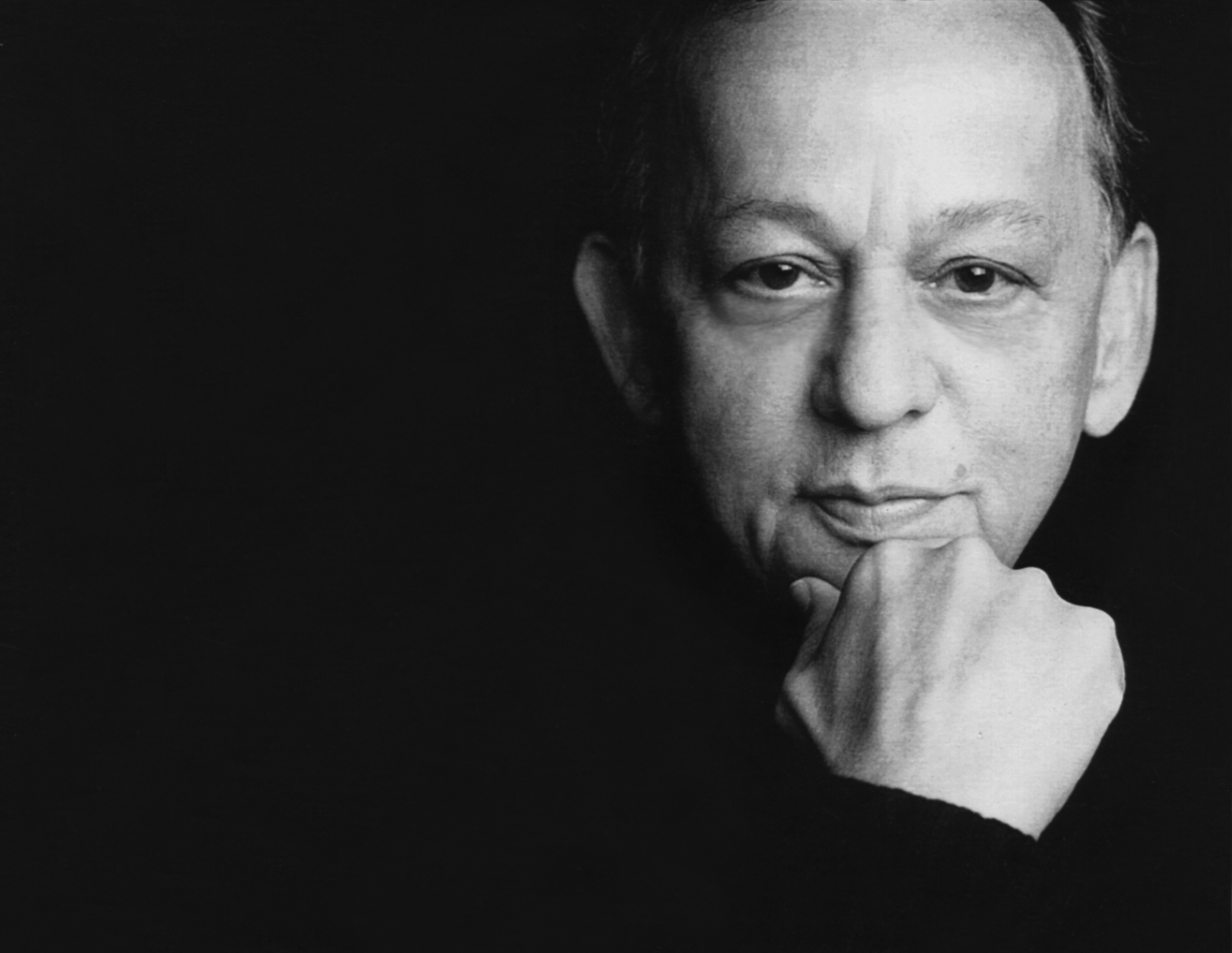
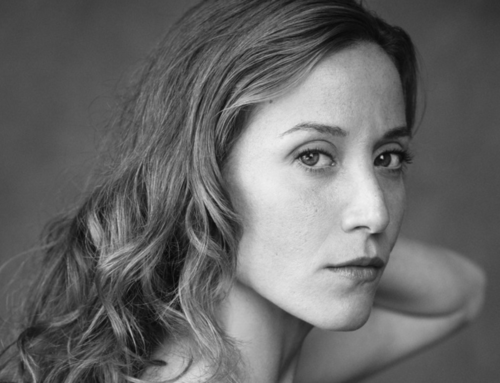
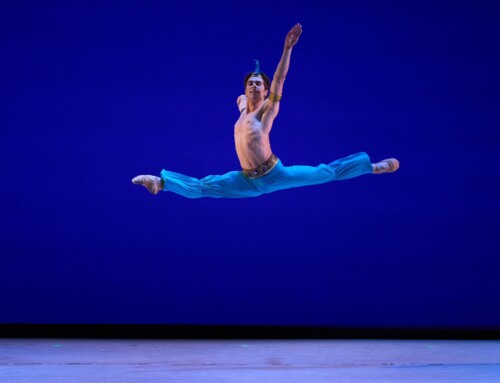
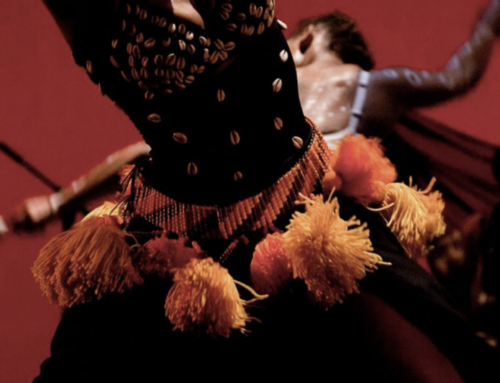
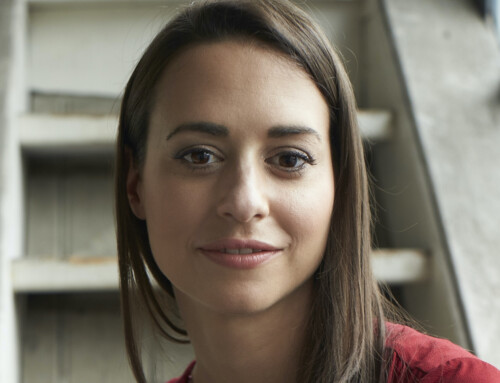
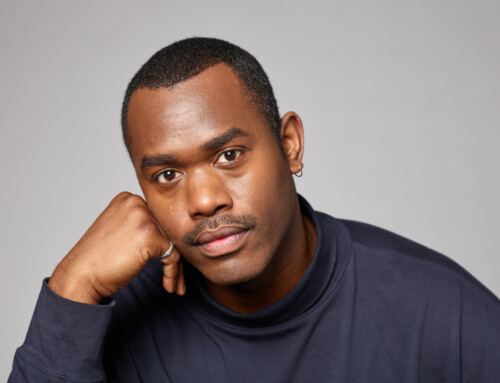
Thank you, Armando, I loved reading Larry’s interview …… we have become good friends, over the years, and he and Lone, are the reason I got so interested in contemporary dance! When I was about 19 or 20, I saw the video of John Butler’s ‘After Eden’ with Lone and Larry, and that is when I knew that I wanted to pursue that direction in dance!! Since then, Larry has been a guest teacher at NDT for many years, and I have had the distinct pleasure of staging some of Jiri’s works for the fantastic Juilliard School, under Larry’s direction!!
Kudos to Larry, and kudos to you, for this wonderful interview!!!
love, Roslyn
Hey Ros! A great story! Thanks for sharing 🙂 and thank you for reading!
Awesome!!! I am enjoying these special interviews Armando.
Thanks Anthony! Great that you read these! It’s has been a while man…I hear great things. Sending you love!
I do agree with all of the ideas you hage offered for your post.
They are really convincing and will certainly work.
Still, the posts arre very quick for starters. Could you please extend them a bit from subsequent
time? Thanks for the post. https://www.waste-ndc.pro/community/profile/tressa79906983/